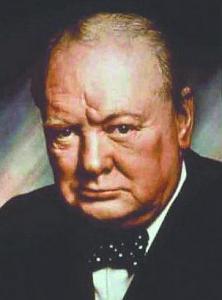
Winston Churchill once remarked: “History is written by the victors.” Or so we are led to believe; a German might have said it in 1941 before Mr Churchill later claimed it as his own.
It is one of the most commonly-cited quotes pertaining to the academic discipline of history, used to illustrate that history is often highly subjective because the people, groups or nations involved will mould accounts to their own ends. More specifically, the version of history written by the victorious people, groups or nations – the more powerful ones – will usually win out over others.
Perhaps though, and it is never wise to disagree with an individual held in such high esteem by so many, this is not entirely true. Perhaps it is unrealistic and slightly lazy to suggest that the weaker, defeated people from the past are merely subjects of their conquerors’ making without a voice of their own. If anything, to say history is written by the victors is to do a disservice to history itself.
Naturally there will be times when those in power suppress and silence opposition – they could use propaganda, censor material they don’t like or destroy entire civilisations and remove any traces that remain.
However, to be a good historian is to dig deeper, to account for such actions and come to more fair and balanced conclusions. When we look back on significant historical events, from the Roman Empire and medieval Vikings through to the European colonisation of Africa and the 20th Century’s World Wars, we have a broader understanding of exactly what happened – and why it happened – that goes beyond what the victors would say.
By bringing together a multitude of sources and accounting for discrepancies – such as a nation consciously trying to write history in a certain way – we can arrive at a fair conclusion. And that is they key: victors might write one version of history, but a history student’s job is to understand that is just one account and to then bring it together with other sources to get an accurate picture of the past.
